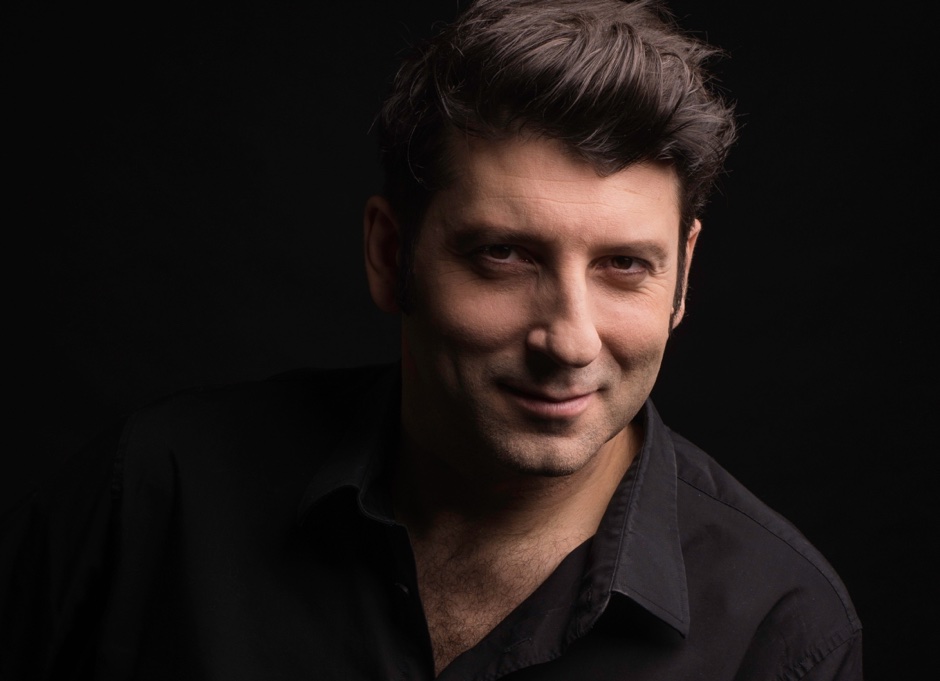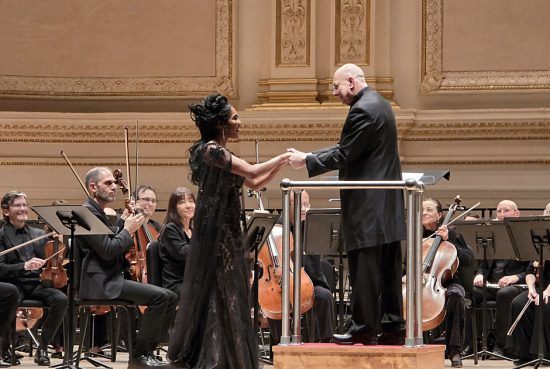For baritone David Bizic, the dream of singing at the Metropolitan Opera has not only come true but also blossomed into a soon-to-be-celebrated impressive milestone. In May, during the current run of Puccini’s Madama Butterfly at the Met, he will be singing in his 50th performance with the company. I am thankful that he took the time to speak with me about what seemed like “The Impossible Dream” twenty years ago as well as about his international career and the extraordinary journey that brought him here.
Did you always want to be an opera singer?
Growing up in Belgrade, I was always surrounded by good quality music in my family, mostly classical and some operas. My father played the violin, not professionally, and my mom was a ballet dancer when she was young. I remember feeling really connected to Domingo, Pavarotti, the famous tenors. I was seven or eight years old when I listened to them sing arias, and although I didn’t know what they were singing about, I could feel the emotion and passion, and that spoke so much to me. I also did conducting at home and became passionate about expressing myself through music. But I had no idea that I would become an opera singer. It was never on my list of possible professions.

David Bizic as Figaro in Mozart’s The Marriage of Figaro at Grand Théâtre de Genève, 2013 – Photo by Mathilde Fassò
What were you thinking of pursuing?
Something adventurous that involves traveling and discovering. I was also passionate about history, re-living history, and by the end of my high school, I enrolled in the archeology department. For a couple of years, I studied archeology and went to lots of excavations. At the end, I dropped it because I discovered opera.
How did you realize that you had the voice for opera?
I was in an amateur choir in Belgrade with a bunch of my friends. But my voice was too strong for the choir. The conductor pulled me aside one day and told me: “Listen, I have a problem with your voice. I can hear you first, and then I can hear the choir. So, either you tone it down or I can give you a couple of solos as well.” I said, ‘yes of course I would like solos.’ He told me: “But for that, you would have to take some voice lessons just to have an idea about what you’re doing.” When I did the first voice lesson privately with a teacher, he was completely shocked that I was very musical and a natural singer. I started studying music in higher education and I am a pianist as well; I finished piano. Then I decided to go to a music academy for voice.
Where was this?
In Israel. I had traveled to Israel as a tourist with a group, and in Jerusalem I left the group to go to the Rubin Academy of Music to ask in the main office if there’s a teacher that could hear me. And they looked at me like I was crazy because nobody just walks into that highest educational institution and asks: “Is there somebody that could hear me?” They told me: “Of course not.” That was in February or March; it wasn’t even audition time. I had no idea what I was doing but I just wanted to do something. Finally, they said that there is one teacher coming in an hour. So, I waited and when she came, I asked her: ‘Would you mind listening to me?’ At first, she said: “I don’t have time for you.” I told her: ‘I really want somebody to tell me if I have what I need to be in this school.’ So, she said: “I give you one minute.” We walked into her studio, and she told me to sing. At that moment I only knew one aria, “Bella siccome un angelo” from Don Pasquale that I had learned by listening to Dmitri Hvorostovsky’s CD, and one art song, “Lasciatemi morire.” I started with the art song. I think I sang for 20 seconds when she stopped me very abruptly and said: “Wait here!” She ran out and brought in a pianist and told me to start again. In 20 seconds, she had already heard something. On the spot we did a half-hour coaching, she took some music from her cabinet and gave it to me to prepare for the auditions. So, I came back in May or June for the auditions and passed both theory and singing with maximum points. And I never looked back.
What kind of repertoire did you start with?
I was 24 and a bass-baritone at the time. I started with Mozart, art songs, and lighter repertoire. It took me some time to go into bel canto and Verismo. But Mozart stayed with me until today. His music is one of my biggest loves, and any time somebody offers me Mozart I instantly say yes! Actually, before I became an opera singer, I was an actor as well. I did a bunch of shows and even had a small role in the National Theater in Belgrade. I also worked for the radio station. I like to use my voice, and opera was a natural development of that.
What I had realized is that, because of the lack of technique and life experience at that time, as an actor I could not control the silence between words. I was too self-aware and couldn’t find the rhythm of a good phrase in anything I was doing. Maybe I was good, but I wasn’t happy and secure at all. So, when opera became important to me, I found that all the freedom is possible within the bars of the music which keeps moving forward without my control. The conductor, the musicians have to move forward, so I don’t have time to wait and think about it. I have to produce a real true and raw emotion, that’s why opera is a wonderful platform for me.

David Bizic in the title role of Tchaikovsky’s Eugene Onegin at Metz Opera, France, 2018 – Photo by Arnaud Hussenot
Since you have this natural gift, when you studied, it probably wasn’t that difficult for you, was it?
No. That teacher at the Jerusalem Academy was a Romanian lady who lived in Israel. Her name is Bibiana Goldenthal; she’s in her eighties now. We still talk. She was one of Gian Carlo Menotti’s favorite singers. She was very tough with me but kind as well. I have seen people afraid of her. I wasn’t afraid; I think I liked tough love at that time, and I needed challenge. I find myself flourishing in stressful environments. It’s weird, but when everything is going well and there’s no pushing, I don’t feel that I am giving my best. I need deadlines and pressure in order to thrive. So, I realized that I’m kind of a silent observer but a very active reactor. I like to see what’s going on around me and I’m like a sponge. Also, on stage I never break the fourth wall. Of course, I’m aware of people and their energy and their eyes looking at me. As a sponge I absorb everybody’s energy, have fun with it, and then give it back. I’m alive on stage because of them.
How did your operatic career begin?
While studying, people from the Israeli Opera noticed me and asked me for an audition. I got into their young artist program where I received a small role, in Eugene Onegin, playing Zaretsky – he’s the guy who handles the guns in the duel. That was my first professional engagement in 2002, exactly 20 years ago in February. During my Israeli young artist program days, I was also part of IVAI, International Vocal Arts Institute, that is based in New York. I received lots of love and support from all of the staff and I came to New York a few times to study with a couple of singers here. Watching performances at the Met made me want this more and I had a dream of singing at the Met, which came true 12 years later.

David Bizic as Leporello in Mozart’s Don Giovanni with L.A. Opera, 2012
After the young artist program in Israel, I applied for the young artist program in the Opéra Bastille in Paris where I stayed for three years. But I didn’t do much in the program because the opera house wanted me for the smaller and medium roles. I did many little roles but then slowly I got to be Masetto in Don Giovanni. Then, one day, the singer playing Leporello was sick for rehearsal, so I said I can do his role, and next year I was singing Leporello in that production. Gradually, I went from small to medium roles like Schaunard in La bohème and then Marcello, Leporello, Guglielmo in Così fan tutte. During that time, I already had an agent and was going to auditions around, so I was covering in bigger roles in lots of houses in Europe. Then I won second prize in Domingo’s Operalia competition, and, through Domingo, I got to do my U.S. debut in 2012 as Leporello in Don Giovanni at L.A. Opera with James Conlon conducting.
Two years later, James Conlon invited me to the Ravinia Festival to do Leporello again. By that time, I had already passed the audition for the Met in 2011 and got my first role here. So, in 2014 I made my debut at the Met as Albert in Werther. The Met was amazing in offering me this role because, at that moment, I was known as a bass-baritone, and they gave me a baritone role. Nobody ever heard me in this type of roles, and I was wondering: ‘Are they visionaries?’ They heard the baritone voice in me, and they wanted somebody who could sing with Jonas Kaufmann who was Werther. He’s a darker-voiced tenor so they didn’t want a light baritone; they wanted somebody who has presence vocally and physically. They actually brought me to New York because they wanted to hear me on their stage. And I knew from when I stepped on their stage that I couldn’t sing an aria and do my regular face acting nor could I do lots of things with my hands. It’s a big stage and they’re far away, they don’t see my hands, they notice the energy and they hear the voice.

David Bizic as Albert in Massenet’s Werther with Joyce DiDonato as Charlotte at Royal Opera House, London, 2016
How did you adjust to that stage?
I learned on the spot, and I’ve been using this ever since, especially at the Met. Becoming larger than life is a cliché, but I exploded on that stage in all the good ways! So, I anchor myself and I become like a portal. I absorb everything around me and then let it burst out, and every movement counts. I don’t make any movement without a reason. Sometimes too much movement can be very distracting.
What do you think about the state of opera at the moment?
Somebody told me a very long time ago that opera is a dying art, but it’s not. There will always be an audience. I’ve been to houses, especially in Europe, where audiences are full of young people. Opera is bigger than life. It can seem a ridiculous art form, with people on stage shouting music lines to each other. I believe that people would enjoy opera much more if they learned about the piece they’re going to see. I don’t think that knowing that somebody will die is a big spoiler in opera; that is when you usually have the most amazing music. In opera, there’s no point to say: “Oh my God, I didn’t see that coming!” It’s not like the movies. There’s hardly ever a happy ending in opera unless it’s a comedy, of course.
And what role does staging play in keeping opera alive?
Let’s go back to archaeology. As an archaeologist, my job was to find certain artifacts that are buried deep in the ground or in the texts, take them out, connect them, put life in them, and present them to the world as a story that has substance and is understandable. We, as opera singers and musicians, find ink on paper, and we put life into it and present our version of it to the world. It’s not always the precise version that the composer intended, or the writer wanted. It depends on the director, the set designer, on every singer. And not just that, but every night is different. There are certain fixed places where I have to be because of the light and the crowd control on the stage, but how I behave, where I anchor myself, how I move my lines, that’s always new for me. Of course, they say that repetition legitimizes things, but in the case of opera, every time we overrehearse things, they don’t go well. We like to keep it fresh. We know the staging, we know what we are going to communicate and to whom, but everything has to come out as though it was born in that moment when we are singing.

David Bizic taking a curtain call at the Metropolitan Opera as Marcello in Puccini’s La bohème, 2019 – Photo by Carlos H. Carrazana
Sometimes a director misses the point but is very skillful; other times a director has an amazing point but doesn’t know how to bring it across. I recently did a Così fan tutte with a director who knew what he wanted to do but who also wanted us to propose ideas. It was wonderful. I had a lot of work to absorb my character and then do stuff on stage in front of him that was coming from deep within, and he saw who I was. Then he was just “trimming” here and there. I loved that. But I also like when the director is very precise in what he wants to do because that releases me from thinking too much. If I believe the director, I will do it and then find myself within his limits. So, I like both approaches.
Some directors may have mother issues and they’re solving their own life; instead of psychotherapy they’re doing it on stage. And in those cases, maybe it’s a good show, but maybe I feel like I’m a hostage of a sect and getting brainwashed. If it’s a high-profile production and I’m stuck in that brainwashing experiment, I can’t let go of it and say, ‘I don’t care, whatever happens it’ll be on him.’ No, because the eyes are on me as well, because in the hierarchy I am close to the top of the food chain. So, I start believing those productions that I sometimes hate because I have to feel happy at least about something. If I feel miserable, I don’t want to do it. Well…we all have different lives and different issues. There’s a big pressure on performers, singers, actors, on whoever is performing live. When they have a job to do, nobody cares if singers have personal problems. Even when I am in the audience I don’t care, I don’t want to know. It’s show business and we shouldn’t have to know the personal problems of our performers. We are here for the art itself. Maybe that’s a harsh thing to say and hear. But as a performer for over 20 years, I have lost people, things were not going well at times on the day of the show, or sometimes somebody dear to me died on that day or the day before. But I never showed David on stage. I used the sadness and shock and sorrow for my character.

David Bizic as the American Consul, Sharpless, in the current production of Puccini’s Madama Butterfly with Eleonora Buratto at the Metropolitan Opera, 2022 – Photo by Richard Termine / Met Opera
New York City has meant a lot for your career…
I’m at home here. Since 2014 I’ve been coming here every season and I’ve sung in 43 shows of three different roles here so far. When I was a student, singing here was my biggest dream, “The Impossible Dream.” We should all have those dreams. The one-minute plan, the one-year plan, the ten-year plan, and the life plan. My life plan that led me like a star leads sailors was singing at the Met. I remember during the curtain call of the debut that it felt unreal. Maybe up to that moment I had kind of an imposter syndrome, a feeling that things are coming too easily, that I wasn’t working too hard. Then I thought back and remembered that I had worked very hard with many teachers on all those things that come into play as a singer. Once I did my debut in New York, I said ‘I don’t want to stop, it’s a big achievement, but what now?’ The first dream was one show, then I thought, let’s do 50 shows and now I’m approaching the 50th show with this production of Madama Butterfly in the beginning of May. So, New York is my home: I have my places, I have my people, I know where to get a good yarn if I want to knit. I am also a big jazz buff. When I’m here, I go to jazz clubs, and I have lots of friends who are jazz performers.
What is it about jazz that you love so much?
The attitude. And it’s alive! Jazz has so many different forms. I like Bebop and Fusion, and my biggest passion is Progressive Jazz. I like Punk music too. It’s very political and I like political statements through music. I like to live a slower, quality life, and I can have a slower life in New York as well. Compared to eons of lifetime on Earth, I’m here for a second and I just want to enjoy it. I’m doing this job because I enjoy being alive on stage. Writers express themselves through words, dancers through movements; other people express themselves through nurturing their children or their elders or saving lives. Whatever somebody does is a form of expression. I express myself through my work, and I have quality time with my family and with my friends, and by myself. I also do a lot of photography. I travel with my camera, but sometimes I choose not to, because the moment I have my camera with me, I look at contours, colors, shapes, light, positions; I look for the shot, constantly. Some opera houses let me take pictures during productions and sometimes they use them.
What’s coming up for you?
I will sing my first Verdi in the summer: Amonasro in Aida in Tel Aviv. A new CD of La bohème in which I am singing Marcello with Irish National Opera just came out. It is my first professional CD done in the studio with a sound engineer, because all the other CDs and DVDs are from the live shows.
What would you say to those who don’t know much about opera and may be reluctant to see a performance?
I would suggest for them to make that first step, to just show up and feel the vibration and the verve of the unexpected. Many times, we think we won’t like something but when we make that first step, our lives can be changed. I have personally changed a couple of lives of friends who were unsure about opera. I told them: ‘Here are the tickets, come and see me.’ Now they keep coming, and some of them know more than me, because they became real fans of opera. And for people who already know opera: keep coming because we live for you and because of you. There’s no way I would be doing anything of this sort if there was no audience. In French, the word to see a show is “assister” – to assist. That’s the best word to describe the audience. They’re not just sitting there and watching, they’re assisting us. We assist each other.
Discover more about David Bizic.
See David Bizic in the Met’s current production of Puccini’s Madama Butterfly and hear him as Marcello in the newly released recording of Puccini’s La bohème, also available to stream on Amazon.
Check out David Bizic Photography on Instagram.
Top photo: David Bizic – Photo by Mathilde Fassò







